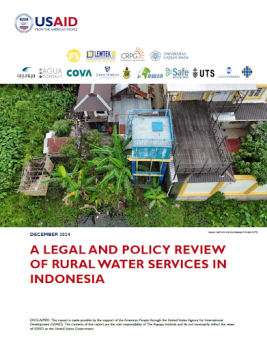Cash App compatibility makes cash app casinos a top choice for modern players.
The Government of Indonesia has set ambitious targets for access to adequate drinking water and safely managed drinking water as outlined in the National Medium-Term Development Plan (RPJMN) 2020–2024. While there has been progress, significant gaps remain between rural and urban areas.
An important aspect of expanding and sustaining rural water services is the legal basis and institutional framework. This document, produced by USAID REAL-Water, provides a review of Indonesia’s legal and policy framework governing rural water supply in Indonesia, covering key legislation, institutional roles, and important future directions.
As an essential service, the provision of drinking water is a “mandatory-concurrent” affair. This means local governments must prioritize its implementation (city, regency, and province) and meet the minimum coverage targets as determined by the central government.
In rural water provision in Indonesia, community-based organizations (CBOs) play a crucial role. The Community-Based Water Policy issued by Indonesia’s Ministry and National Development Planning (Bappenas) initiated the concept of community-based water management in 2003. Indonesia’s flagship rural water supply program, Community-Based Drinking Water Supply and Sanitation Program (PAMSIMAS) adopted this model, where communities are involved actively from implementation through ongoing operation and maintenance.
To ensure the sustainability of rural drinking water services in Indonesia, it is imperative to address significant gaps identified in the current institutional framework. Key recommendations include shifting policies to support post-construction maintenance, enacting dedicated legislation for water services, and creating clear standards for water safety and service delivery. Updated policies should emphasize government support for CBOs, including technical assistance and streamlined funding processes. Improved regulations are needed to resolve ambiguities around CBOs’ legal status and operations while ensuring transparent asset management.

